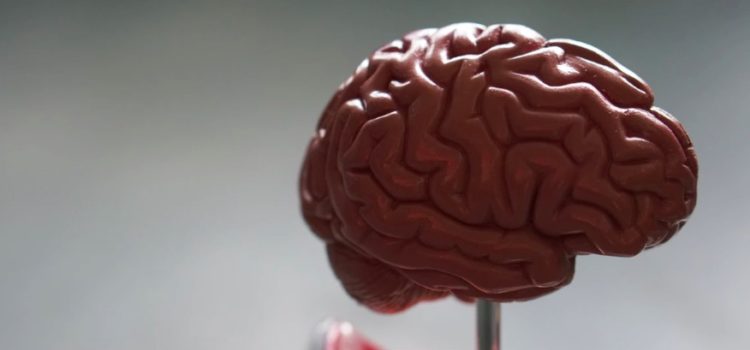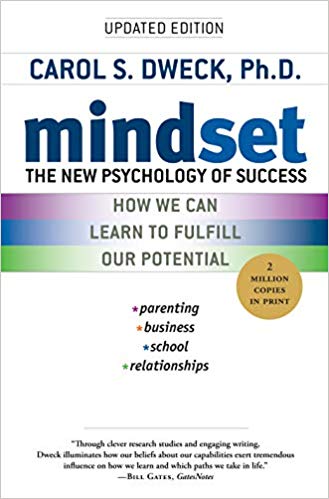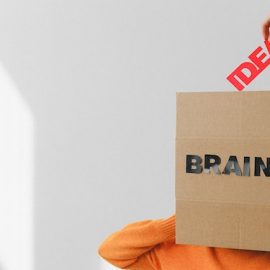

This article is an excerpt from the Shortform summary of "Mindset" by Carol Dweck. Shortform has the world's best summaries of books you should be reading.
Like this article? Sign up for a free trial here .
What are fixed and growth mindsets? Which do you need to be resilient and successful?
A fixed mindset is the belief that your intelligence and abilities are innate and unchangeable. A growth mindset is the belief that personal qualities like intelligence and ability can change and improve. The terms growth mindset and fixed mindset come from Carol Dweck’s research, notably in Mindset.
We’ll cover fixed mindset characteristics, growth mindset characteristics, how they’re different, and how to adopt a growth mindset.
Fixed and Growth Mindsets
Although you may not be conscious of them, you have powerful beliefs that affect what you want and whether you get it. In Mindset, psychologist and researcher Carol S. Dweck argues that one belief in particular can determine the course of much of your life, starting as early as your preschool years.
You learn one of two mindsets, fixed and growth mindset, from your parents, teachers, and coaches — that personal qualities such as intelligence and ability are innate and unchangeable (this is how she defines a “fixed” mindset) or that you and others can change and grow (a “growth” mindset). Regardless of which view dominates your thinking, it shapes your personality and helps or hinders you from reaching your potential.
Understanding how your mindset plays out can change your career, relationships, the way you raise your children, and your overall satisfaction in life.
Nature vs. Nurture: Growth Mindset and Fixed Mindset
Throughout much of history, experts have debated the roles of nature and nurture in determining people’s personal characteristics, asking which has the bigger impact — genetics or environmental factors including background, experience, and education.
Today, most researchers agree that nature and nurture work together. People start with certain genetically determined characteristics — different traits and aptitudes — but experience, education, and effort determine where you can go with them. In fact, science is discovering that our brains have a greater capacity for ongoing development than once thought.
Dweck’s research shows that, on a personal level, whether you believe that your traits are innate and unchangeable or that you can grow your intelligence and skills affects you profoundly.
Fixed V. Growth Mindsets
What is the difference between growth and fixed mindsets? You typically live by either a fixed mindset or a growth mindset, which shapes how you learn, cope with setbacks, and relate to others. We’ll start with a comparison of the fixed and growth mindsets. Later examples will flesh out the descriptions and show how the mindsets work. It’s important to know that even if you have a fixed mindset now, you can learn the growth mindset, which can transform many aspects of your life.
Fixed Mindset Meaning
When you have a fixed mindset, you believe your abilities are unchangeable. You were born with certain traits and a certain amount of intelligence and that’s that. Many people are trained in this mindset from an early age — for instance, by a teacher who believed your IQ determines everything: You’re either smart or you’re dumb; you can learn or you can’t.
When you view your abilities as unchangeable, you feel you must constantly prove yourself. If people get only a set amount of intelligence and a certain character, you want to prove you have a lot, although you secretly worry you were shortchanged. You don’t want to look stupid or fail. You feel you’re being judged or rated in every situation and must measure up. Children inculcated with this mindset often fear losing their parents’ or teachers’ approval and love if they fail.
Growth Mindset Meaning
When you have a growth mindset, you believe the abilities you’re born with are a starting point you can build on with hard work, persistence, and the right learning strategies. You have a passion for learning, welcome mistakes as opportunities to learn, and seek challenges so you can stretch. You also have a greater ability to survive difficult times.
The author first encountered the growth mindset as a young researcher while studying how children coped with failure. She gave kids a series of puzzles to solve, progressing from easy to difficult ones. She was surprised to find that some children loved attempting the hard puzzles, relishing the challenge and opportunity to become smarter. Until then, the author had viewed intelligence and problem-solving as fixed abilities, but watching kids learn from failure changed her mind.
Believing in the ability to learn and grow doesn’t mean believing anyone can become an Einstein or believing anyone can do anything they aspire to if they apply enough effort. But the growth mindset recognizes that you can’t predict someone’s potential or how far their passion, work, and learning can take them.
Predictions of Outcomes Come From a Fixed Mindset
Predictions have little value. Many people whom we consider geniuses today — for instance, Darwin, Tolstoy, and Mozart — were ordinary as children. Golfer Ben Hogan was unathletic as a child.
However, many teachers believe IQ tests accurately predict students’ potential, even though the creator of the test, Alfred Binet, didn’t intend for it to be used that way. He believed education and practice could change intelligence (which he defined as memory, judgment, and attention). He created the IQ test as a way of identifying children who were having problems — so they could be helped to improve.
The author’s grade school teacher seated students in order of their IQs, entrusting only the highest-IQ students with tasks such as carrying the flag. This created an atmosphere in which the children’s number one goal was to look smart or avoid looking stupid. It took the joy out of learning.
Comparing the Growth Mindset and Fixed Mindset
Simply put, mindsets are beliefs. This book shows how mindsets or beliefs dictate people’s aspirations; how they alter the way people see success, failure, and effort; and what that means in school, sports, work, and relationships. It also shows how mindsets can be changed.
Here’s an example comparing the fixed and growth mindsets. Imagine you’re a young adult who is having a bad day. You receive a C+ on a paper for an important class. When you return to your car at the end of the day, you find a parking ticket. When you call a friend for sympathy, she seems to brush off your tale of woe. The author presented her students with this scenario and asked how they’d react.
Those with a fixed mindset said they’d feel like a failure and would interpret the three events as confirmation that they were worthless, others were out to get them, and no one cared about them. They said they’d react by not putting so much effort into the next class assignment, breaking something to let off steam, or withdrawing and getting drunk. Although the events were hardly earth-shattering, they led to feelings of failure and paralysis in the students with fixed mindsets.
In contrast, the students with growth mindsets shrugged off the setbacks, saying they’d work harder in the class and be more careful about where they parked. Regarding the friend’s rebuff, they suggested the friend could be having a bad day or might be preoccupied with something. The students with growth mindsets didn’t label themselves negatively and withdraw. They chose action — for instance, studying differently, paying the parking ticket, and being more careful.
Mindsets Drive Actions
Stressing persistence and effort isn’t anything new. We have many sayings and stories intended to show the value of effort: Rome wasn’t built in a day; try, try again; “The Little Engine that Could.” However, researchers discovered that people’s beliefs about effort are more complicated. They come directly from mindset.
People with fixed mindsets don’t believe in persistence or effort. They think: If at first you don’t succeed, then you don’t have what it takes. They avoid effort because if you try and fail, you’ll demonstrate your inadequacies, which you want to avoid.
When the researchers encourage people to accept a fixed mindset, in which they believe abilities are predetermined, they’re afraid of challenge and effort that might unmask them. But when people are taught a growth mindset that emphasizes development, they appreciate challenges and value effort.
Mindset and Self-Awareness
People with either fixed or growth mindsets have different degrees of self-awareness. You might think that people with a growth mindset, who believe they can develop, would have an exaggerated view of their abilities (“I can do anything”). In fact, people with a growth mindset are more realistic about their strengths and weaknesses than those with a fixed mindset.
When you believe you have the capacity to learn, you’re more open to honest feedback and criticism than if you believe you have a finite amount of intelligence. People with a growth mindset understand that you need accurate information about how you’re doing in order to improve. Fixed mindsets distort this information, either blowing it out of proportion or making excuses and minimizing it.
Researchers have found that exceptional people (much like those with a growth mindset) know their strengths and weaknesses, and can turn failures into eventual successes, which is a key element of creativity.
Change Your Mindset: From Fixed to Growth Mindsets
What’s your mindset? People can have a mix of fixed and growth mindsets, or they can apply a fixed mindset in certain situations and a growth mindset in others. You may have fixed beliefs about your intelligence but a growth mindset (believing you can improve) when it comes to other qualities. However, one mindset or the other — fixed or growth — tends to dominate your life.
To review, you have a fixed mindset if you believe your intelligence or abilities are innate and can’t be changed (I’m just not good at math); that you’re a certain kind of person, like it or not. In contrast, you have a growth mindset if you believe you can get smarter by learning and changing fundamental things about yourself, such as becoming more caring or better in social situations.
———End of Preview———

Like what you just read? Read the rest of the world's best summary of "Mindset" at Shortform . Learn the book's critical concepts in 20 minutes or less .
Here's what you'll find in our full Mindset summary :
- The difference between a growth and a fixed mindset
- How a fixed mindset keeps you back throughout your life: education, relationships, and career
- The 7 key ways to build a growth mindset for yourself






